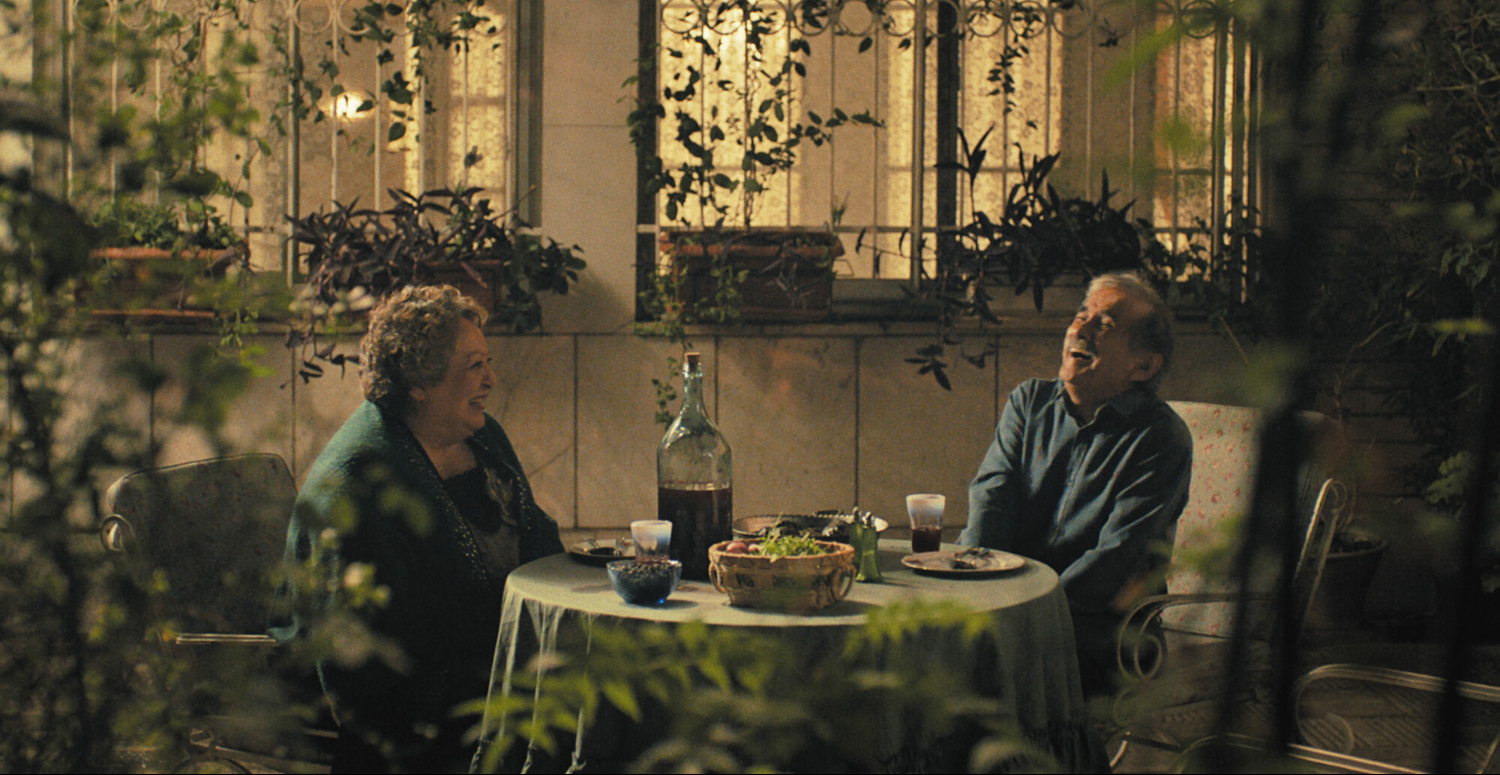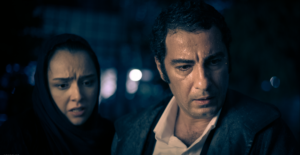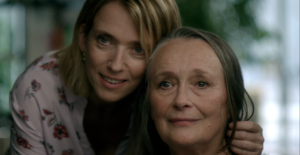Mon Gâteau Préféré
کیک محبوب من – Keyk-e mahbub-e man
(My Favourite Cake)
Grand Prix – Cabourg
Prix du Public & Mention Spéciale du Jury – Amiens
2024/2025

FR EN
Mahin, la soixante-dizaine, vit seule à Téhéran. Souffrant de la solitude et de l’ennui, elle rencontre un soir un certain Faramarz, chauffeur de taxi. Leur soirée, vraie parenthèse d’un bonheur qu’ils croyaient perdu, s’avèrera inoubliable. « Mon gâteau préféré » est une bouffée d’oxygène, une soupape de félicité dans une société sclérosée et désespérée.
Le film, dont le tournage a débuté quelques jours avant le déclenchement du mouvement Femme, Vie, Liberté, a été réalisé par Maryam Moghaddam et Behtash Sanaeeha. Malheureusement (et comme toujours), le couple s’est vu confisquer ses passeports par les autorités de la République islamique durant la production du long-métrage – leur situation reste inchangée à ce jour. Et pourquoi ? Notamment parce que le film met en scène une femme la plupart du temps sans voile – ou alors mal voilée, selon la police des mœurs – et dont le caractère apparaît un peu trop comme rebelle vis-à-vis du pouvoir. « Mon gâteau préféré » dénonce en effet, parfois ouvertement, les dérives de la théocratie iranienne, en particulier sur les droits des femmes, à travers un personnage féminin qui a du mal à se résigner.
Et pourtant, le film se veut universel. Mahin, incarnée par la journaliste Lily Farhadpour, est une femme terriblement seule, pleine de désillusions, confrontée à son vieillissement et à une nostalgie omniprésente. Jusqu’à ce que Mahin pose les yeux sur Faramarz (Esmail Merhabi) et que tous deux retrouvent une flamme qu’il pensaient éteinte. Attendrissant, cocasse et même vraiment comique, le récit, plein de surprises, ne peut que nous faire sourire – hormis (indubitablement) les ultimes minutes et le dernier plan qui sont libres d’interprétation.
« Mon gâteau préféré » montre ainsi, à travers l’histoire de ce charmant duo, que le bonheur peut toujours frapper à notre porte, même si plus grand-chose ne nous rattache à cet espoir. Encore une preuve que le cinéma iranien, bien que muselé dans son propre pays, n’est pas mort et au contraire brille par-delà les frontières, par-delà les cultures, par-delà les vies sacrifiées au nom de la liberté d’exister.
Axel Chevalier
Mahin, in her seventies, lives alone in Teheran. Suffering from loneliness and boredom, one evening she meets a certain Faramarz, a cab driver. Their evening turns into an unforgettable escape from the happiness they thought they’d lost. “My Favourite Cake” is a breath of fresh air, a happy break in a sclerotic and desperate society.
The film, which began shooting a few days before the beginning of the Woman, Life, Freedom movement, was directed by Maryam Moghaddam and Behtash Sanaeeha. Unfortunately (and as always), the couple had their passports seized by the authorities of the Islamic Republic during production of the feature – their situation remains unchanged to this day. And why did this happen? Primarily because the film features a woman who is mostly unveiled – or poorly veiled, according to the morality police – and whose character appears a little too defiant of those in power. “My Favorite Cake” in fact exposes, sometimes openly, the excesses of the Iranian theocracy, particularly with regard to women’s rights, through a female character who finds it hard to accept her fate.
And yet, the film is meant to be universal. Mahin, played by journalist Lily Farhadpour, is a terribly lonely woman, full of disappointments, confronted with her ageing and an ever-present nostalgia. Until Mahin sets eyes on Faramarz (Esmail Merhabi) and they both rediscover a spark they thought had been burnt out. The story is full of surprises, touching, amusing and even genuinely funny, and can’t help but make us smile – except (undoubtedly) for the final minutes and the last shot, which are open to interpretation.
Through the story of this charming duo, “My Favorite Cake” shows that happiness can always knock at our door, even if there’s nothing much left to hold us to that hope. Yet another proof that Iranian cinema, though muzzled in its own country, is not dead, but shines beyond borders, beyond cultures, beyond lives sacrificed in the name of freedom to exist.
Axel Chevalier

